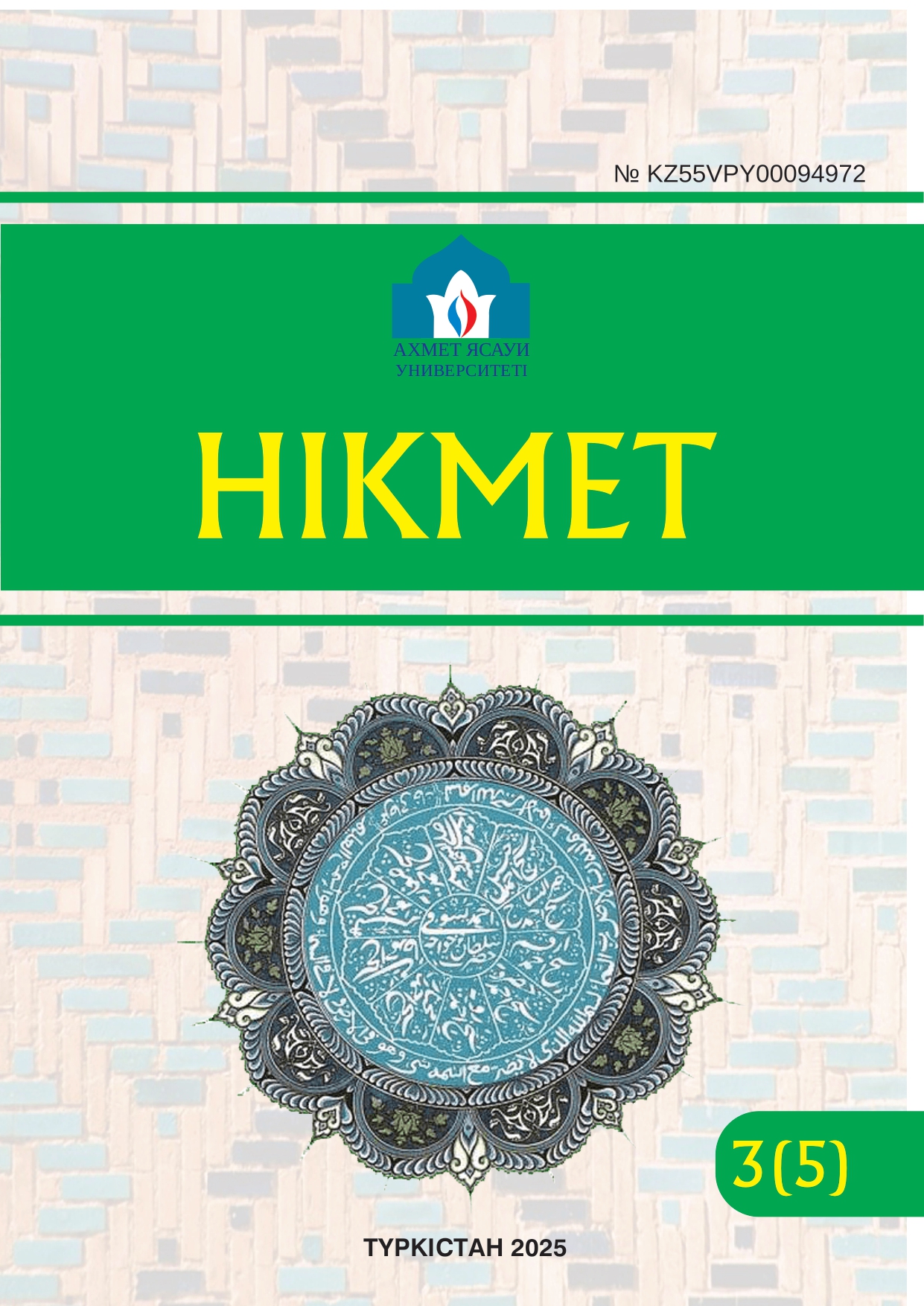The Theological Foundations of Khoja Ahmed Yasawi’s Worldview
108 109
Keywords:
Khoja Ahmed Yasawi, hikmah, Qur’an, Sunnah, Sufi doctrine, spiritual educationAbstract
This study examines the main principles in the religious worldview of Khoja Ahmed Yasawi. First, it explains the significance of beginning every righteous act in the Islamic tradition with the phrase “Bismillah.” It is emphasized that Yasawi also began his hikmets with “Bismillah,” considering it a central principle of Islam. The next part of the study highlights Yasawi’s special emphasis on faith in God and complete submission to Him. He consistently reminded in his hikmets that the primary purpose of human life is to worship the Creator and not to be deceived by the transient pleasures of the world. This idea resonates with the Qur’anic concept of tawhid and the Sufi tradition. The work also analyzes Yasawi’s devotion to the Prophet (peace be upon him) and his Sunnah. In his hikmets, the Prophet Muhammad is praised with deep reverence and presented as an exemplary model. For Yasawi, the Qur’an and Sunnah are the primary sources of religion, and therefore, a Muslim’s duty is to rely on these two foundations. An important part of the study is devoted to the influence of the Qur’an in Yasawi’s hikmets. His works demonstrate how the events and themes of the Holy Book were poetically reinterpreted and how he regarded the Qur’an as both a spiritual and poetic source of knowledge. Yasawi not only read the Qur’an but also preached the necessity of applying it to life. Overall, Yasawi’s worldview represents a systematic reflection of Sufi teachings based on the Qur’an and Sunnah. His *hikmets* stand as a remarkable example of conveying Islamic faith and moral-ethical education to the people in a simple and comprehensible language.

